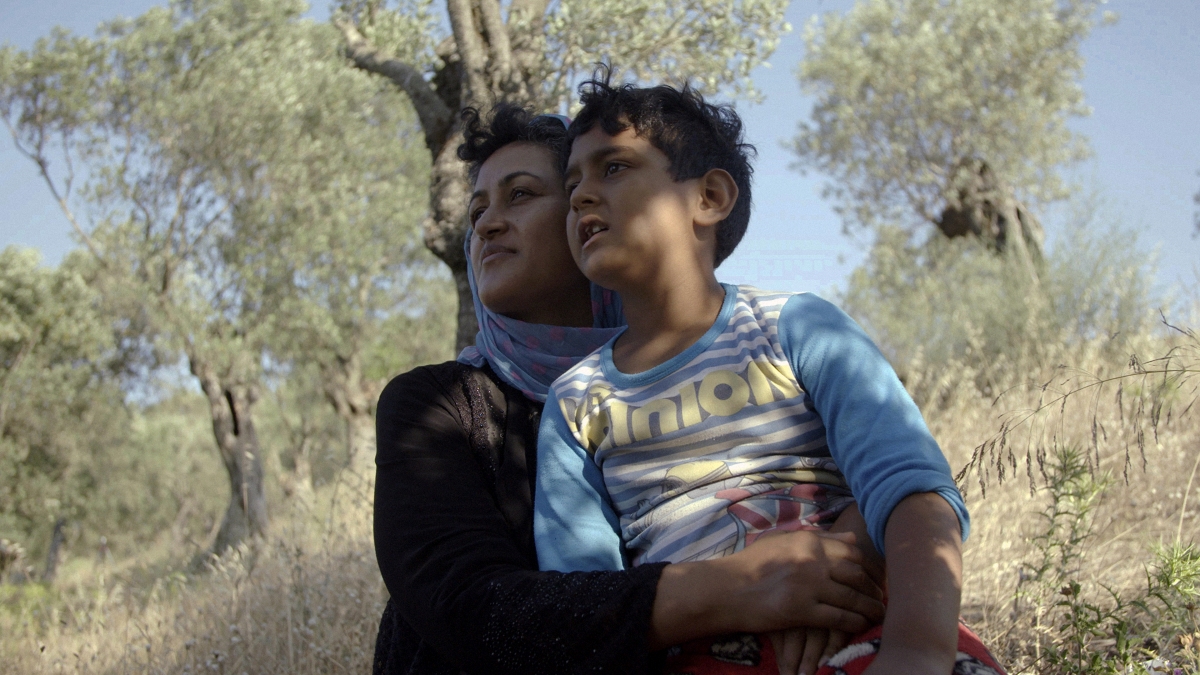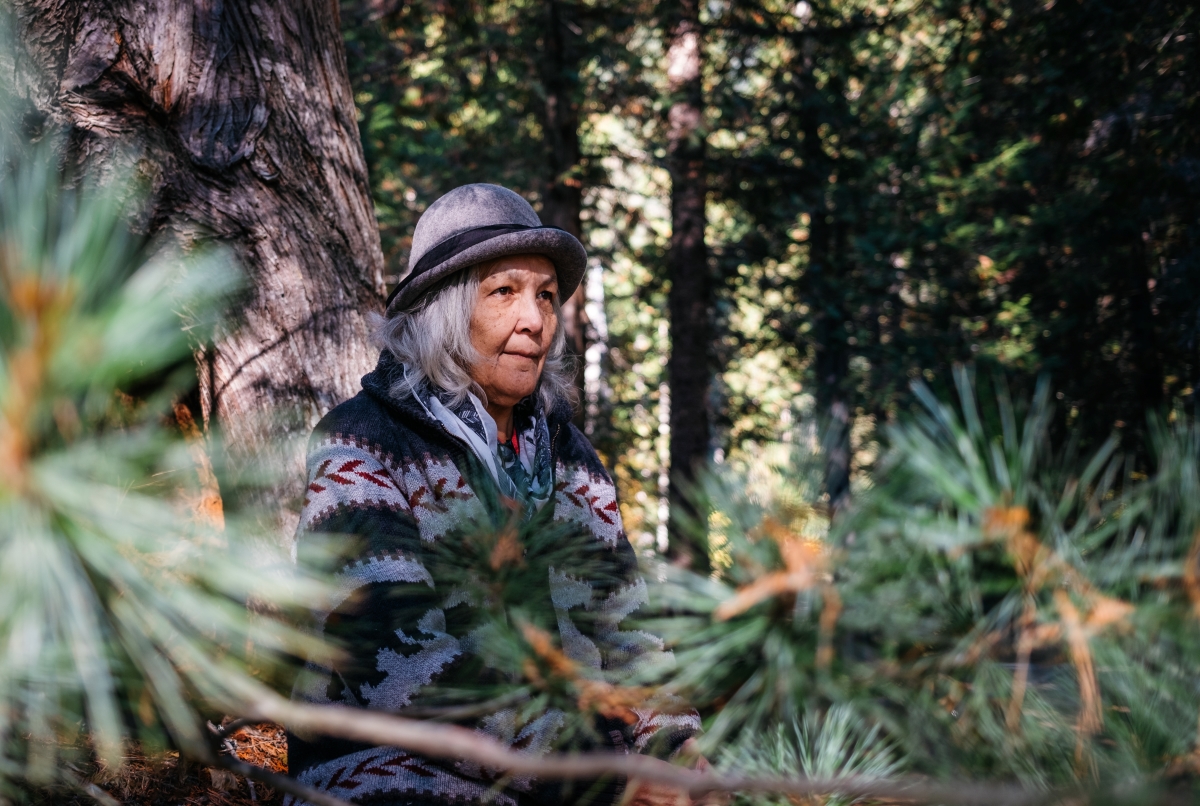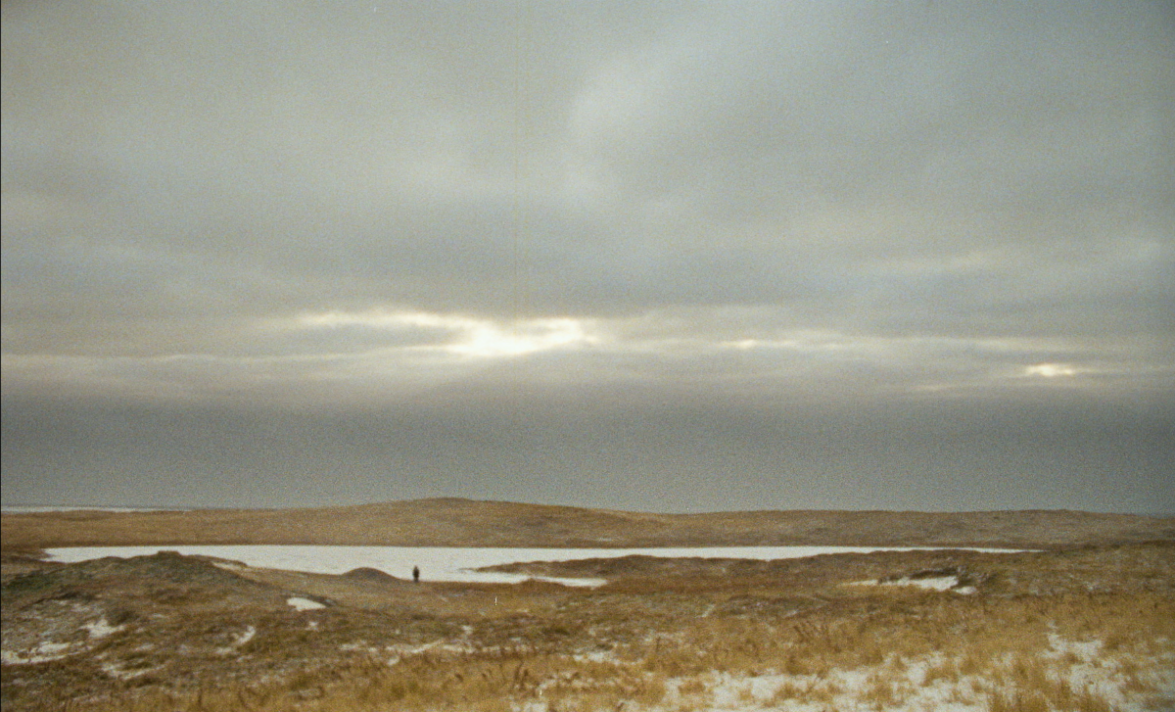Nasim
(Germany, 2021, 123min.)
Dir. Ole Jacobs & Arne Büttner
Program: The Changing Face of Europe (International Premiere)
In English there’s an archaic word moria, meaning to be engaged in excessive frivolity, or a lack of taking things seriously. In Italian, it’s derived from the Latinate for death. Tolkien, who was above even his narrative works a philologist and neologician, named his Dwarven minds Moria, encompassing both these contradictory characteristics.
I had time to think of this seemingly ironic connection while watching the slowly paced, bordering on the somnambulant profile of Nasim. The film is a portrait of a woman, her family, and their life within the Greek refugee camp of Moria. Located atop a mountainside, with hastily constructed shelters draped in plastic scraps in futile attempts to keep out the rain, it’s a displaced persons camp like so many on this planet.
Nasim has travelled from Afghanistan with her husband, children, mother, and sister. We see them making their first attempts to integrate into a Europe that is clearly reticent to allow them passage. Her son Mohammed is growing up and starting to shave, but he wrestles about hanging out with his mother, clearly itching to make his own way. Her youngest child is given a haircut as we hear her hope that one day she can pay a professional to the job.
Her relationship with her husband is distant but not outwardly confrontational, and it’s only when the women gather that they speak of the possibility of her to finally leave the former member Mujahadeen and make her own way free from what seems to be a derision for his incompetence. They talk of suggesting to the authorities tall tales of abuse and betrayal, and they carefully practice just what to say in order to pass through to other nations to settle.
The rest of the film is spent in Nasim’s world: cooking, wandering around, looking miserable, and fondling a smartphone. As COVID becomes yet another concern, we see the local women sewing masks, and attempting to carefully clean hands meant to avoid one contagion among so many others.
It’s all quotidian stuff, but set in the squalid yet orderly camp that was originally designed for a few thousand individuals, but expanded to hold more than 12,000 refugees. The film does almost nothing to articulate any of these facts and figures, merely documenting what goes on, providing with fleeting glances and an attempt at objectivity to capture the small, human moments from this struggling family.
Drama finally does occur with the arrival of local Greek protesters aghast at the denizens of Moria and the tension rises. Riot police bedecked in helmets and shields march in orderly fashion while xenophobic vitriol is spewed at refugees. The escalation increases as fires start and, in time, the entire camp is awash in red hot flame, evoking (implausibly) the fiery doom of that other Moria. It may be ridiculous to compare this to a fantasy film’s iconography, but Nasim’s story of struggle and displacement is surely as universal and ancient as anything drawn for fiction.
After abandoning even the meagre belongings that had made it this far there is yet another exodus to witness, this one towards awaiting boats. Here again the path is blocked, new tents are setup, and the throngs of those seeking a better life find a new area to make a stand. They carve out crude protest signs and march, demanding nothing short that the simple right to live.
Ole Jacobs and Arne Büttner have clearly set out to be as hands off as possible in their almost direct cinema approach, but that illusion is occasionally compromised when in the midst of chaos people turn to the lens and ask, justifiably, why a camera is being carried when the documentarians could be assisting the elderly or grabbing bags of clothing or supplies for the long journey. The importance of capturing this story to represented thousands is, of course, implicit, but it’s interesting when it’s made explicit the obvious challenge of any form of invisible witnessing when the flames begin to encroach.
There are thousands of stories to be told, and hundreds of documentaries that have now addressed similar storylines, so it’s not entirely clear what this film has to uniquely contribute to our understanding of the situation. That may be well beyond the scope of what the film has to answer for, and if it feels that we’ve watched a tale not fully written, that’s because Nasim and her family’s journey is far from complete. We get a glimpse of the middle of this travel – we don’t see her life before, and only through a simple text on black do we see what transpired after the cameras went away. It’ll be up to an audience to decide whether this brief, intimate look is sufficient to truly get a sense of what Nasim and her family experiences for many months on that mountaintop in Greece. The story of Nasim’s is hardly unique, yet it’s told with enough patience and clarity that many will be drawn in and feel both empathy and engagement with what she has to tell.
Nasim screened at Hot Docs 2022.











